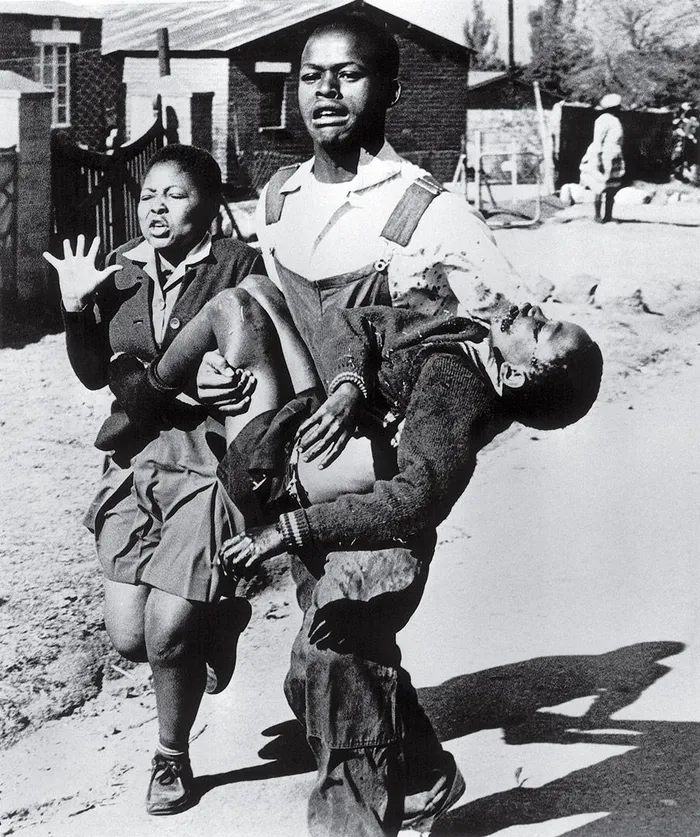Education remains the key for youth

Youth Day, observed on 16 June, commemorates the 1976 protest by black schoolchildren against the apartheid government's policy of enforcing Afrikaans as a medium of instruction. This day is often marked by remembrance of one of the most iconic and historic photographs taken during the uprising.
Image: Facebook
Youth unemployment has worsened over the past decade, with nearly half of South Africa’s young people struggling to find work.
According to Statistics South Africa’s latest quarterly labour force survey, the unemployment rate among youths aged 15 to 34 now stands at 46.1% - a sharp rise from 36.9% in 2015.
Youth Month is celebrated every June following a declaration by the late former President, Nelson Mandela. It is also a time when most South Africans collectively honour the pivotal role that young people played in the struggle against Apartheid and the historic Soweto Uprising of 1976.
For the first quarter of 2025, the number of unemployed youth aged 15 to 34 rose by 151 000 to 4.8 million, while the number of employed youth dropped by 153 000 to 5.7 million.
As a result, the youth unemployment rate increased from 44.6% in the fourth quarter of 2024 to 46.1% in the first quarter of 2025.
The situation is even more dire among the youngest job seekers. For those aged 15 to 24, unemployment stood at 50.3% in 2015, escalating to 62.4% a decade later. Among individuals aged 25 to 34, the rate increased from 31.4% to 40.4% over the same period.
As Youth Month comes to an end, Sentinel News spoke to Hout Bay residents about the country’s youth unemployment crisis and their thoughts on possible solutions.
David Elliot, founder of SchoolLIFT, one of the latest initiatives in Hout Bay, which aims to become a crowdfunding platform to support schools in need.
Mr Elliot said that with youth unemployment on the rise in South Africa, the need to invest in the next generation has never been more urgent.
According to Mr Elliot, Hout Bay alone has more than 100 registered NGOs working tirelessly to support young people, where government resources are said to be falling short.
"These organisations are stepping in to create safer spaces, reduce unemployment, and expand access to quality education - not only in academics, but also through sport, culture, art, music, technology, environmental care, critical thinking, wellbeing, and community service," Mr Elliot said.
He said one of the greatest challenges faced by youth is coming from broken or unstable homes, often said to be leading to disengagement from school and increased vulnerability.
"This can be mitigated when schools are equipped with additional support teachers and community programmes that provide mentorship and emotional scaffolding. Communities must rally behind the vision that education is the most powerful tool we have to break cycles of poverty, crime, and inequality," he said, adding that this means not only sending children to school but actively valuing their education by nurturing a culture of learning in their homes, neighbourhoods, and faith spaces.
Llandudno Primary School principal, Alexander Molteno, said while it was important to honour the legacy of 1976, it was equally vital to "acknowledge how the landscape of education continues to evolve".
"Often through the determined efforts of communities and local non-profits who step in where systemic support falls short," Mr Molteno said.
Llandudno Primary is a government school, driven by deep community involvement, he said.
"But we remain aware that this is not the norm. Across South Africa, grassroots organisations and dedicated individuals continue to be the backbone of educational access, equity, and enrichment," Mr Molteno said.
"Their work is not only necessary - it’s nation-building."
Bethany Samuels is a former Hout Bay teacher and now works as a private tutor, assisting pupils from struggling communities such as Imizamo Yethu.
Ms Samuels said the key for any of the youth is a good education.
"You see so many stories about people coming from a poor background and becoming a success story, but the emphasis is placed on the word 'good'."
In South Africa today, gaining access to a certificate or diploma only costs you a few hundred rands, but this is where the problems come in."Many of our youth especially decided to take this shortcut, many of them cornered as they don't have money for studies to obtain these certificates, but they have families struggling and they desperate to do something," Ms Samuels said.
She added: "Problems come in when they land the job, now they do not know how, and they start damaging their reputation from an early age. We need to combat this, and our youth must have access to a good education wherever you go, with no requirements attached."
Emmanuel Kganakga national director for youth policy and legislation at the Department of Women, Youth and Persons with Disabilities, said as Youth Month concludes, it is important that the public reflect on the country's "storied past and the heroic contributions of those who fought for our freedom".
"We also look forward with renewed hope and determination. By investing in our young people, we are not only building a skilled workforce but also forging a nation defined by inclusion, innovation, and lasting prosperity," he said.
In addition to government-led efforts, Mr Kganakga said that companies across the nation have started partnering with educational institutions to provide essential learnerships, internships, and apprenticeships, ensuring that the skills being imparted are in line with industry needs.
"Our policy landscape is also youth-friendly. The national youth policy 2030 is being evaluated this year to ensure that youth have access to the opportunities they need to realise their full potential. All stakeholders are encouraged to mainstream youth development into the design, monitoring, and evaluation of their mandates and programmes," she said.
Sentinel News approached other organisations and projects in the area for comment, but they were unable to comment at the time of going to print.